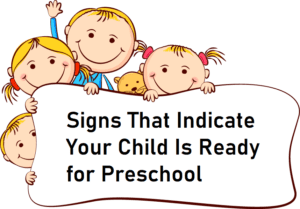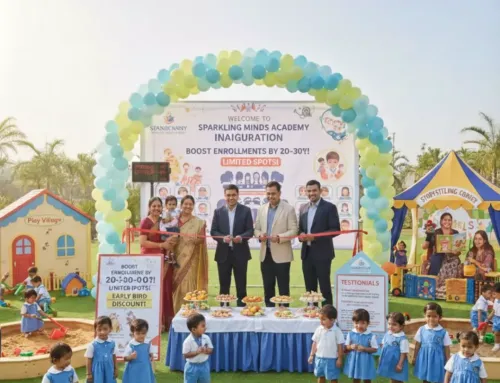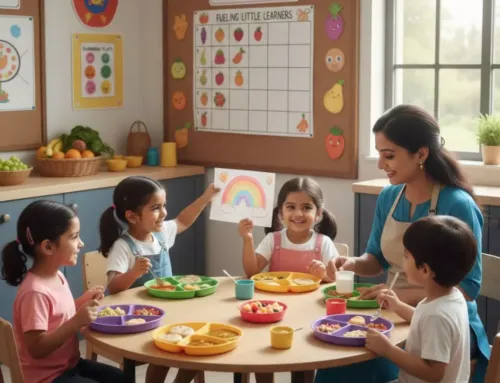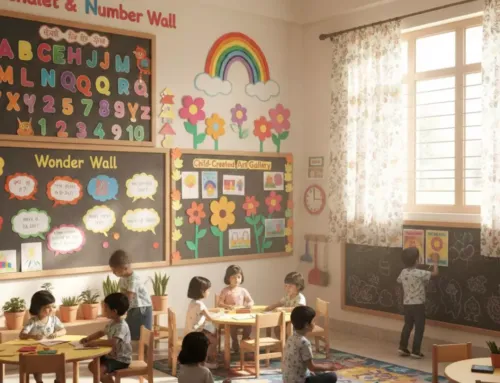Preschool Readiness is a significant milestone in a child’s life, a decision that often sparks questions and concerns among parents. Although most preschools typically accept children at around age 2 1/2, it’s crucial to recognize that preschool readiness goes beyond a child’s chronological age. It entails an assessment of a child’s social, emotional, physical, and cognitive development to determine their suitability for a structured educational program within a group setting. In this comprehensive guide, we will delve into various facets of preschool readiness, equipping parents with the knowledge needed to make informed decisions on behalf of their children.
Fostering Independence
One of the fundamental aspects of preschool readiness centers around a child’s level of independence. Preschools generally expect children to possess certain basic skills, such as being potty-trained, capable of washing their hands unaided, eating meals independently, and feeling comfortable with sleeping solo during naptime. These proficiencies not only nurture self-sufficiency but also facilitate a smoother transition to the preschool environment.
Experience with Separation
Preschool readiness includes a child’s ability to separate from their primary caregiver. If a child has prior experience with different caregivers, they adapt better to preschool. To help children adjust, plan brief separations, like weekends with grandparents or days with relatives. Some preschools offer gradual transitions, starting with shorter hours and gradually increasing school time.
Developing Solo Project Skills
Preschool entails various arts and crafts projects that demand concentration and the ability to focus on individual tasks. Children who enjoy drawing, puzzles, or other solitary activities at home are often well-suited for preschool. If your child tends to seek assistance with every task, you can help them cultivate solo project skills by arranging playtimes during which they can engage in independent activities while you attend to other tasks. Extend these periods of solo play progressively to bolster their confidence and independence.
Embracing Group Participation
Preschool frequently involves group activities like “circle time” and collaborative projects that necessitate interaction with peers. While some children naturally thrive in group settings, others may require some time to adjust. If your child isn’t accustomed to group activities, you can introduce them to such experiences outside of school. For instance, attending storytime sessions at the local library or enrolling them in a class like tumbling can aid in familiarizing your child with playing and learning alongside other children.
Embracing Routine and Schedule
Preschools adhere to a consistent daily routine, encompassing activities like circle time, playtime, snacks, outdoor play, and lunch. Children tend to flourish in environments with predictable schedules as it provides them with a sense of control and security. If your child’s daily routine currently lacks structure, consider implementing a more regular timetable. Initiate specific meal times, plan daily outings, and establish bedtime rituals that involve a bath, storytime, and bedtime. These routines can aid your child in adapting to the predictable schedule of preschool.
Evaluating Physical Stamina
Preschools are teeming with activities that keep children actively engaged throughout the day, from art projects to field trips and outdoor play. Assess your child’s energy levels and their ability to transition between activities without becoming overly fatigued or irritable. Moreover, preschools often schedule naptime after lunch. If your child can remain active until naptime or even throughout the day, they may be better prepared for preschool. However, if they still require a mid-morning nap, you may want to consider whether a half-day or full-day program is more suitable initially.
Setting Goals for Preschool
Parents should also reflect on their motivations for enrolling their child in preschool. Are you seeking personal time or daycare for your child? Or do you believe that preschool is essential for adequately preparing your child for kindergarten? It’s essential to clarify your objectives and explore alternative options if your child doesn’t appear ready for the demands of preschool. Many experts concur that there are various ways for children to develop the necessary skills for kindergarten, including attending a high-quality daycare facility or spending quality time at home with a nurturing caregiver.
Kindergarten Readiness
While preschool can offer valuable experiences, it’s imperative to recognize that alternative paths lead to kindergarten readiness. Research has shown that children benefit from being cared for by someone genuinely concerned about their well-being and development, ensuring they engage in age-appropriate activities. Enrollment in an organized preschool is not the sole method of preparing a child for the transition to kindergarten. Therefore, parents should assess their child’s needs and consider whether other options may be equally effective in fostering their development.






Leave A Comment